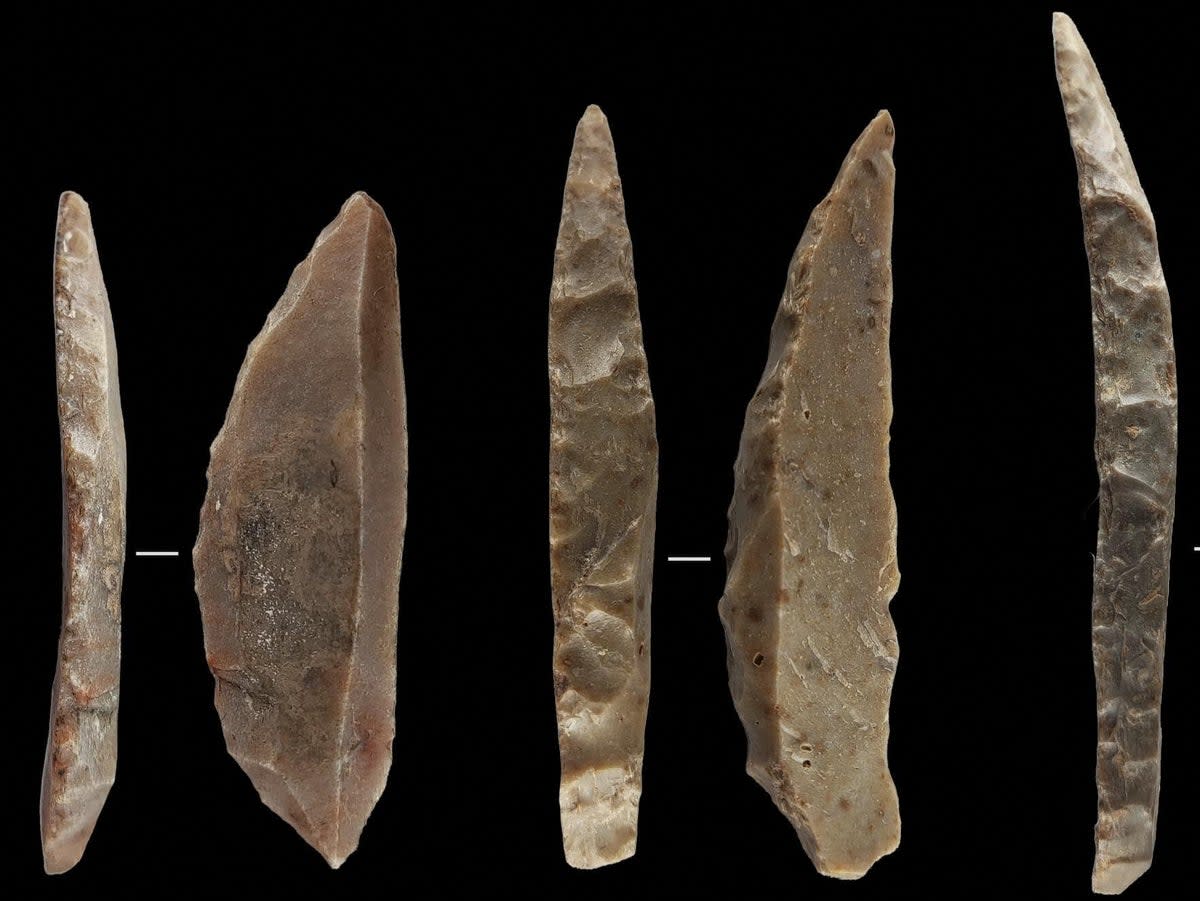Humans and neanderthals ‘lived together for thousands of years and shared knowledge’ study says

Modern humans and Neanderthals co-existed in Europe for up to 3,000 years, new research finds.
The study, published in Scientific Reports, shows the two species may have even shared primitive technologies, such as stone knives, and may have even interbred.
The paper also suggests that humans may have lived alongside Neanderthals in France and northern Spain for much longer than previously thought – between 1,400 and 2,900 years.
Lead author Igor Djakovic, a PhD student at Leiden University, The Netherlands, said: “It indicates our understanding of the timing of these occupations may not be suffering from substantial gaps in the record.
“Whether or not this co-existence featured some form of direct interaction, however, remains to be resolved.”
Experts analysed a dataset of 66 Neandertal and modern human artefacts from 17 archaeological sites across France and northern Spain, as well as an additional 10 Neanderthal specimens.
Through computer modelling, researchers could estimate the date ranges for these samples to infer the earliest and latest dates that these human groups might have been present at the sites – filling in the gaps in the archaeological record.
The findings showed that Neanderthal artefacts first appeared between 45,343 and 44,248 years ago, and disappeared between 39,894 and 39,798 years ago, just before they became extinct.
Modern humans were estimated to first appear between 42,653 and 42,269 years ago – suggesting a co-existence of 1,400 to 2,900 years.
Mr Djakovic added: “This is largely consistent with previous estimates, and reaffirms the duration of co-existence between these groups during the early western European Upper Palaeolithic.”
Fossil records from Bulgaria, the Czech Republic and south-eastern France indicate the first arrivals of modern humans occurred at least 45,000 years ago – and may have been as early as 54,000 years ago.
“At a continental scale, this would suggest a possible overlap of upwards of 14,000 years between these human species,” added Mr Djakovic added.
“Yet, little is known about the nature, timing, and specific geographic areas of interaction between Neandertals and Homo sapiens during this critical period in human evolutionary history.”

 Yahoo News
Yahoo News 
